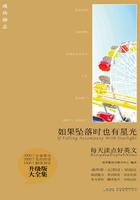
确定目标 Confirm the Goal of Movement
If we see an expression or symptom and fail to recognize the meaning behind it, the best way to understand it is, first of all, to reduce it in outline to a bare movement. Let us take, for example, the expression of stealing. To steal is to remove property from another person to oneself. Let us now examine the goal of the movement: the goal is to enrich oneself, and to feel more secure by possessing more. The point at which the movement sets out is therefore a feeling of being poor and deprived. The next step is to find out in what circumstances the individual is placed and in what conditions he feels deprived. Finally we can see whether he is taking the right way to change these circumstances and overcome his feeling of being deprived; whether the movement is in the right direction, or whether he has mistaken the method of securing what he desires. We need not criticize his final goal; but we may be able to point out that he has chosen a mistaken way in making it concrete.
The changes which the human race has made in its environment we call our culture; and our culture is the result of all the movements which the minds of men have initiated for their bodies. Our work is inspired by our minds. The development of our bodies is directed and aided by our minds. In the end we shall not be able to find a single human expression which is not filled with the purposive of the mind. It is by no means desirable, however, that the mind should overstress its own part. If we are to overcome difficulties, bodily fitness is necessary. The mind is engaged, therefore, in governing the environment in such a way that the body can be defended—so that it can be protected from sickness, disease and death, from damage, accidents and failures of function. This is the purpose served by our ability to feel pleasure and pain, to create phantasies and to identify ourselves with good and bad situations. The feelings put the body in shape to meet a situation with a definite type of response. Phantasies and identifications are methods of foreseeing; but they are also more:they stir up the feelings in accordance with which the body will act. In this way the feelings of an individual bear the impress of the meaning he gives to life and of the goal he has set for his strivings. To a great extent, though the feelings rule his body, they do not depend on his body: they will always depend primarily on his goal and his consequent style of life.
Clearly enough, it is not the style of life alone that governs an individual. His attitudes do not create his symptoms without further help. For action they must be reinforced by feelings. What is new in the outlook of Individual Psychology is our observation that the feelings are never in contradiction to the style of life. Where there is a goal, the feelings always adapt themselves to its attainment. We are no longer, therefore, in the realm of physiology or biology; the rise of feelings cannot be explained by chemical theory and cannot be predicted by chemical examination. In Individual Psychology we must presuppose the physiological processes, but we are more interested in the psychological goal.
当我们发现一种表现或征兆,却无法认清其背后的意义时,最佳的理解方法是:首先,将这种表现或征兆大致转化为一个简单的动作。我们以偷窃为例:偷窃,就是把别人的东西拿走,据为己有。现在让我们来研究一下这种行为的目标:它的目标就是让自己富有,依靠拥有更多的东西来获得更多的安全感。所以,这种行为的根源是一种贫穷和匮乏的感觉。其次,要看一下偷窃者当时所处的环境,以及他在何种情况下产生了匮乏的感觉。最后,我们要观察他是否采取了合适的方式来改变环境,并克服自己的匮乏感;他的行为是否处于正确的方向,或者他在获取渴望的安全感时,是否选择了错误的方法。我们不必谴责他的最终目标,但可以让他明白,在实现自己目标的过程中,他已经走错了方向。
人类在所处环境中作出的改变,我们称之为文化。而我们的文化皆源于人类思想激发身体所进行的各种行为。思想激励我们工作;思想指引和帮助我们身体的发展。最终,每个人的所有表现中无一例外地充满了思想的目标。不过,也不应该过多强调思想的作用。如果要克服困难,身体的适应程度也是不可或缺的。由此可见,思想控制了环境的方式,身体才能得到保护,使其免受疾病、死亡、灾害、意外和机能的破坏。我们感觉快乐与痛苦、创造各种幻想、分辨自身所处环境优劣的能力,也都是为了这个目标而拥有的。面临各种情形时,这些能力使身体处于良好的状态,并作出正确的反应。幻想和辨别是预见未来的两种方法,除此之外,它们还能激起许多与身体动作和谐的感觉。一个人活得有意义,以及有自己的奋斗目标,就是以这种方式影响了他的感情。尽管个人感情在很大程度上控制着身体,但它却并不依赖身体,而通常是依赖这个人的目标和他为目标而选择的生活方式。
毋庸置疑,个人不仅仅只受到生活方式的支配。如果没有深层原因,他的态度决定不了他的病症。唯有感情加强后,才能产生作用。个体心理学中发现的新观点是:感情根本不会与生活方式相冲突。只要确定了目标,感情就会为了实现这一目标而不断改进。因此,我们的话题已经脱离了生理学或生物学范畴:化学理论不能解释感情的产生,化学检验更不能预测感情的方向。从个体心理学角度看,我们必须先假定心理过程的存在,但更令我们感兴趣的是心理目标。
词汇笔记
circumstance [sə:ˈkəmstəns] v. 情况;环境;情势
例 In normal circumstances I would have resigned immediately.
在正常情况下,我会马上辞职的。
phantasy [ˈfæntəsi] n. 幻想;怪念头
例 Clouds are hills in vapour, hills are clouds in stone—a phantasy in time's dream.
烟霞之山汇而为云,乱石之云凝而为山,此即时光之梦的幻想。
therefore [ˈðɛəfɔ:] adv. 所以;因此
例 Therefore, princess should be belongs to me.
所以说,公主应该是属于我的。
physiology [ˌfiziˈɔlədʒi] n. 生理学;生理机能
例 They change your internal physiology.
它们改变你内在的生理机能。
小试身手
人类在所处环境中作出的改变,我们称之为文化。
译_______________
它们通常依赖这个人的目标和他为目标而选择的生活方式。
译_______________
如果没有深层原因,他的态度决定不了他的病症。
译_______________
短语家族
……they stir up the feelings in accordance with which the body will act. in accordance with:与……一致;按照;依照
造_______________
……they do not depend on his body:they will always depend primarily on his goal and his consequent style of life.
depend on:依靠;信赖;取决于
造_______________